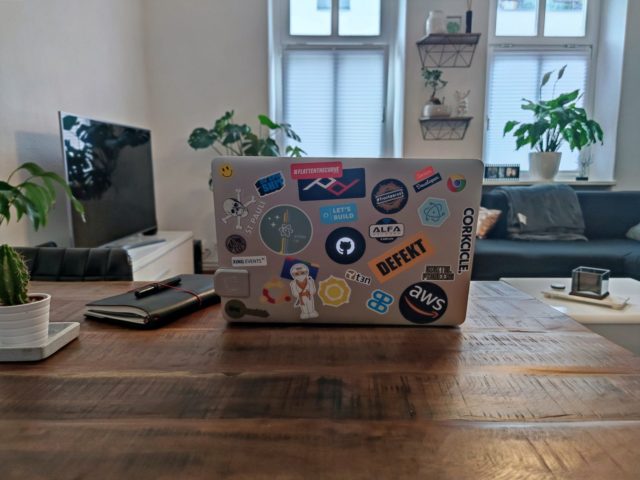The first thing to say here is I never thought it would be me.
Miscarriages are something we’re all acutely aware of. The statistics behind it are sobering. One in four women experiences a miscarriage. One in five of those women are left facing anxiety levels similar to those seen in psychiatric outpatient services.
Again, I never thought it would be me. I never thought I would be part of that statistic and go through one of the worst experiences a woman can possibly endure.
Nobody does.
I was at work when it happened. I was on a call with one of our directors. To be frank, I thought it was my period, but I’d never felt pain like that before. It was embarrassing and I tried to get through that call without saying anything; breathing through the pain.
Until I couldn’t.
Something was wrong. I could feel it and I felt hot with panic. It was a strange feeling and I immediately booked in to see the doctor.
After being checked over, I was told the news there and then. I’d had a miscarriage. It wasn’t planned. Regardless, I was overwhelmed with shock, disbelief, and sadness. I was embarrassed and ashamed. It was like an out-of-body experience and I was watching – just for the briefest of moments – as someone else’s trauma unfolded before my eyes.
The words embarrassed and ashamed may shock you reading this. How can a woman that has gone through one of the worst experiences possible feel embarrassed and ashamed?
I had a week off and came back full-time. It became apparent – very quickly – that it was too much too soon. I was still harbouring a lot of those initial feelings I had and I was diagnosed with postnatal depression. From there, I moved into a part-time role.

My husband was great with me. He felt my pain and my sadness, but like thousands of other men that go through this, he felt conflicted and helpless. That comes with its own emotional toll. He was being weighed down by all these feelings and had to juggle them alongside his demanding role.
This leads me on to what I’m raising awareness for in this article, specifically on that final point, what people who go through this horrible scenario are entitled to from their places of work.
During the week I had off, I spent a lot of time reading up on what the standard statutory rights were and how the UK compared to other countries.
It was apparent that there is the equivalent of nothing in place here in the UK when it comes to supporting women and couples that go through miscarriages.
Again, being frank, that’s rubbish. It’s not good enough.
In March, the news broke that New Zealand had amended its policy and introduced bereavement leave for miscarriages and stillbirths. That’s a stark contrast to the UK where there is nothing in place for couples that suffer a miscarriage during the first 24 weeks. Any absence is taken straight out of a sick pay allowance.
That’s wrong. It angered me. As someone that has gone through this, I felt compelled to challenge it.
So, I started with my own place of work, at Hallam.
My line manager empowered me to champion this and put it in front of our Managing Director and, in turn, he told me to put a policy together. It was signed off immediately.
The agency’s unequivocal support, compassion, and understanding during this time were unbelievable, but its commitment to support my desire to challenge and change this wasn’t something I expected.
Ok, so what’s our policy here at Hallam? Well, there are five parts to this:
- Five days compassionate leave – for both the woman and men in order to have space and time to process the miscarriage.
- Paid leave for any associated or follow-up medical appointments and fertility treatment.
- Two days paid leave when menstruation returns after the event – any woman that has gone through this will tell you that the first period following a miscarriage is awful.
- Access to Hallam’s Mental Health First Aiders and ‘Care Coins’ if you feel you would benefit from professional counsel – this is particularly a huge benefit and removes that barrier of having to try and find a therapist.
- A phased return to work – beginning with a return to work meeting to outline working arrangements, required adjustments, and how it can be managed.
It’s about creating trust, transparency, and understanding between the employee and the employer, and feeling equally comfortable dealing with the situation without judgement.
Ultimately, though, this isn’t just a Hallam thing. This is a UK-wide issue that needs to be addressed and taken charge of. I want companies to feel pressure, from the likes of Hallam, that it’s no longer acceptable to have nothing in place for people who experience a miscarriage.
With every company that takes the bull by the horns, we’re creating momentum. And as more people begin to talk about this, the better chance we’ve got of getting this in front of the Government to get these outdated laws and regulations, that have been in place far too long, reviewed.
Men and women deserve statutory rights for this. We deserve that space to be allowed to grieve and process it. We deserve to be treated like humans.
That’s what I’m fighting for. That’s what Hallam is fighting for. Now I urge you to join this fight. You can take that first step by signing this petition below, but beyond that, take a look at what your own workplace has got in place and feel empowered and confident to be able to challenge it.
I’ll finish how I started. I never thought it would be me. We never do. But that doesn’t mean we can’t fight for the changes women and couples need to be able to deal with a miscarriage, should the worst happen.
Please help make this change happen so others can get even just a fraction of the support I was able to receive. There is a petition you can sign here.
Thank you.
If you want to speak to us, get in touch.



